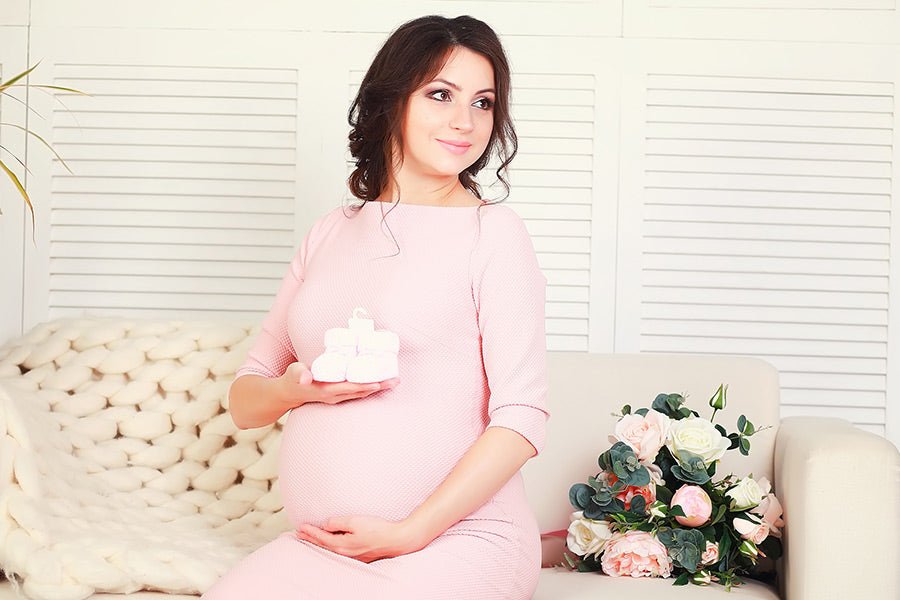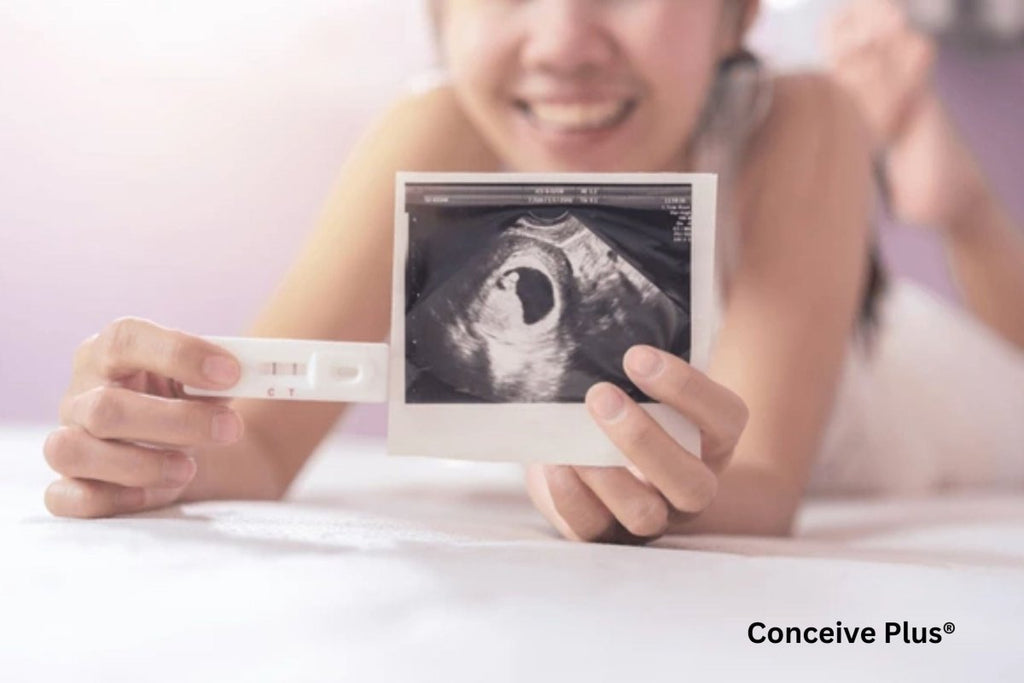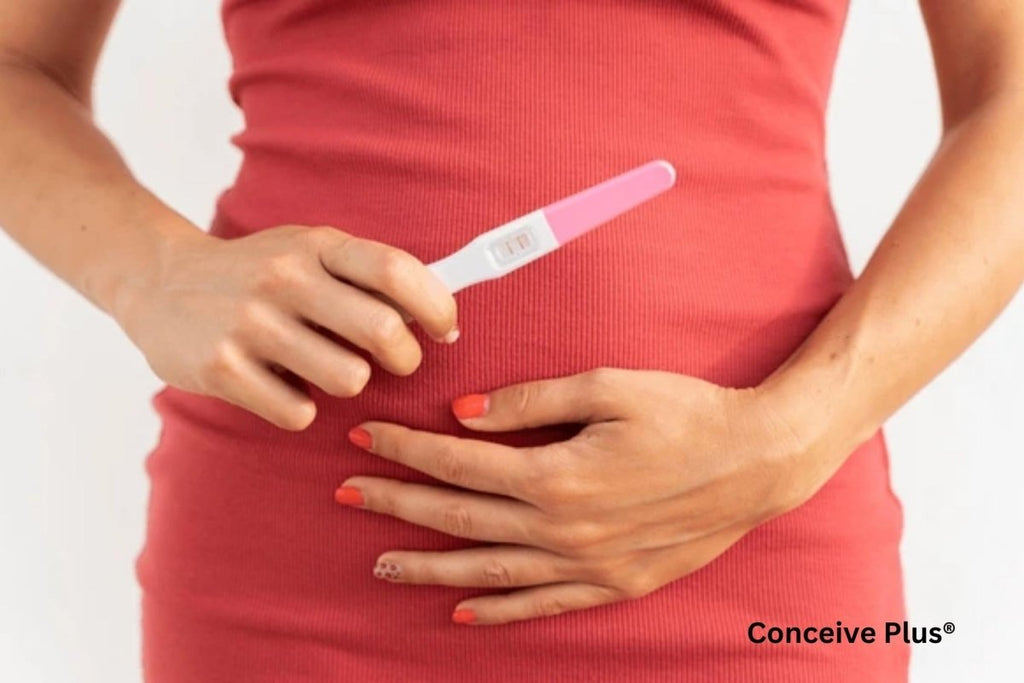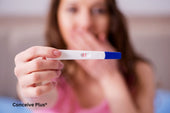Most Accurate Am I Pregnant Quiz Featuring 50 Key Questions

The most accurate am I pregnant quiz might bring so many emotions in mind. Some individuals sense tiny changes in their bodies and wonder if a baby’s on the way. Other folks have similar signals but they turn out to be early menopause instead. This article looks at how to spot the difference between pregnancy and menopause. It also discusses why you probably don’t need a 50 question pregnancy quiz, plus presents a few direct queries that help you see if you might be pregnant or if something else is up.
Why Early Clues Matter
Some notice a missed period, a bit of spotting, or even random fatigue. A few people mention swollen breasts or mild nausea. That can trigger the thought: “is it pregnancy?” But stress, diet changes, or normal hormonal swings might lead to similar symptoms [1]. So it helps to understand what your body is doing.
Top Tip: Try to record your daily cycle patterns. Did you skip a period? Jot that down. If you generally run like clockwork, missing your usual start day may be your biggest heads-up.
Quick Overview: Possible Pregnancy Signs
Below are some classic signs to watch, though they’re not ironclad proof:
- Fatigue: Feels deeper than normal tiredness.
- Frequent Bathroom Visits: Hormones shifting can prompt extra urination.
- Strange Food Preferences: You might want weird combos or lose your appetite for usual favorites.
- Spotting: Light pink or brownish discharge, typically shorter than any typical cycle.
- Mood Swings: Possibly sharper or more random than your PMS patterns.
One or two hints alone won’t always confirm. It’s a set of them that raise suspicion.
Top Tip: If you see multiple hints from the list, you might pick up a store-bought test or plan to visit a clinic for more precision.
Menopause vs. Pregnancy: Deeper Insights
There’s also the pregnant or menopause quiz topic, which can pop up if you’re in your 40s or 50s. Early pregnancy can mirror perimenopause. They both involve hormones in flux [2]. So how to know which it is?
Similarities
- Irregular Bleeding: Could be weird spotting if pregnant or random, lighter cycles if menopausal.
- Tiredness: Both can leave you wiped out.
- Moodiness: Hormones, up or down, can lead to emotional roller coasters.
- Cramps and Bloating: Yes, they can happen in both as well.
Differences
- Hormone Direction: During pregnancy, hormones climb (like hCG). In menopause, estrogen and progesterone wind down.
- Breast Changes: Early pregnancy usually enlarges breasts, often darkening the nipple area. In menopause, dryness is more typical, plus less elasticity.
- Long-Term Fertility: Pregnancy indicates fertility is still there. Menopause points to a gradual end of fertility.
10 Comparison Questions: Menopause vs. Pregnancy
- Have your cycles disappeared for months, or just one missed cycle so far?
- Menopause: Extended gaps (months) become common.
- Pregnancy: Often just one late or missed period at first.
- Do you experience sudden hot flashes or night sweats?
- Menopause: Very common.
- Pregnancy: Rare but possible as occasional overheating.
- Are you noticing an increase in breast size and darkening of nipples, or are breasts less tender?
- Pregnancy: Typically more enlargement and nipple changes.
- Menopause: Tenderness can happen but is often milder or sporadic.
- Is your sleep interrupted by feelings of intense heat, or do you feel it’s consistent insomnia?
- Menopause: Hot flashes and sweats can wake you.
- Pregnancy: Sleep disturbances may be due to nausea or bathroom visits.
- Do you sense a strong spike in emotional swings, or is it more gradual?
- Menopause: Emotions fluctuate but can develop gradually over months.
- Pregnancy: Surges might be sharper in early weeks.
- Have you noticed frequent urination just recently?
- Pregnancy: Often appears in early weeks and continues.
- Menopause: Not usually a hallmark, though it can happen if pelvic floor is weaker.
- Are you seeing changes in hair growth or skin dryness?
- Menopause: Thinning hair and drier skin can be frequent.
- Pregnancy: Hair often becomes thicker; skin might appear more glowing or break out.
- Does bone health concern you because of known estrogen decline?
- Menopause: Lower estrogen affects bone density.
- Pregnancy: Typically no direct bone density drop in early stages.
- Is your biggest clue a persistently missing period along with new fullness in the breasts?
- Pregnancy: Could signal the start of a new journey.
- Menopause: Period irregularity usually pairs with hot flashes, dryness, etc.
- Are you also experiencing a sudden intensification of nausea or aversions to certain smells?
- Pregnancy: Strong smell sensitivity is very common.
- Menopause: More subtle or not as common.
These questions can help you see which scenario fits better. Still, the surest route is a blood test or a reliable at-home pregnancy test to confirm or rule out pregnancy [3].
Top Tip: If you’re over 45, it’s wise to consider both possibilities when you notice a missed period. Perimenopause can take years, but pregnancy can surprise you if ovulation is still happening.
Do You Really Need a 50 question pregnancy quiz?
Some might want the 50 question pregnancy quiz for fun, but it's hardly a requirement. Shorter question lists often help just fine. They typically cover timing of unprotected sex, unusual tiredness, changes in breasts, or if you had spotting that seemed off-schedule [4].
Internet quizzes rely on your self-reported feelings and aren’t actually reading your hormones. So they can be interesting but not conclusive.
Top Tip: If a quiz strongly hints “yes,” just do a real test. That’s the data that matters.
Quick Recap of Fertility-Friendly Nutrients
Fertility can get a boost from the right vitamins and minerals:
- Folic Acid: Key in preventing neural tube issues if you do conceive.
- Vitamin D: Helps bone and hormone stability.
- Vitamin C: Supports tissue health and general immunity.
- Vitamin B Complex: Boosts metabolic and hormonal functions.
- Iron: Carries oxygen around your body, helpful if pregnant.
- Magnesium: Tied to hormone regulation and calmer nerves.
Men seeking to up fertility could add:
- Zinc: Encourages sperm formation.
- CoQ10: Fuels sperm motility.
- L-Carnitine: Helps sperm energy processes.
- Maca Root: Might assist with libido or sperm count.
Top Tip: If you’re lacking in certain nutrients, consider specialized supplements or talk with a professional for custom guidance.
When to Test for Pregnancy
Check the most accurate am I pregnant quiz in your own mind. If certain conditions fit:
- Period is a week late.
- You had unprotected sex on days close to ovulation.
- Nausea or bigger breasts are unusual for you, yet they’re happening now.
- Smells you used to love suddenly make your stomach turn.
Use the first morning urine for a home test. The result might be more trustworthy. If it’s negative but you still suspect, try again in a few days or get a blood test [5]. Additionally, some wonder about sex during period and its impact on conception. While the chances are lower, sperm can sometimes survive long enough to fertilize an egg if ovulation occurs soon after.
Top Tip: Don’t test repeatedly throughout the same day. That can mess with your head and produce conflicting readings.
Lifestyle Factors That Affect Conception
Pay attention to daily habits. They matter.
- Nutrition: Eating fresh produce, lean proteins, and enough water can stabilize hormones.
- Exercise: Gentle movements or moderate cardio assist healthy weight and fertility.
- Sleep: Aim for 7-9 hours. Good rest supports hormone release.
- Stress Levels: Ongoing stress can throw off cycles.
- Caffeine & Alcohol: Too much can affect fertility for both partners.
Top Tip: If you’re feeling out of sync, a calm daily walk or some deep breathing exercises can help center your mind and possibly your hormones too [6].
Comparing Pregnancy vs. Non-Pregnancy Signs
Sometimes, it’s not menopause confusion that you face, but rather typical health issues or monthly cycles that mimic pregnancy. Here are 15 questions to ask when differentiating between pregnancy and non-pregnancy signals:
- Has your period always been irregular, or is this delay new?
- New delay: Might suggest pregnancy.
- Chronic irregularity: Could be normal for you.
- Are you unusually sensitive to certain smells?
- Yes: Could hint at pregnancy.
- No: Probably just standard sniffing ability.
- Do you have frequent nausea, especially in the morning?
- Yes: Check for pregnancy.
- No: Perhaps it’s just a mild bug or stress.
- Has your appetite changed drastically in the last two weeks?
- Yes: Could be pregnancy.
- No: Might be your regular pattern.
- Have you lost weight or changed your diet to cause missing periods?
- Weight changes: May disrupt cycles.
- Pregnancy: Typically no significant weight drop early on.
- Have you experienced any breast swelling that’s more intense than typical premenstrual symptoms?
- Yes: Could indicate pregnancy hormones.
- No: Possibly normal cycle shifts.
- Are you feeling more fatigued in the afternoon or all day long?
- All day long: Pregnancy sign.
- Midday slump: Could be normal life fatigue.
- Is there a mild cramping without a normal period flow?
- Yes: Could be implantation.
- No or normal period cramps: Might not be pregnancy.
- Did you start or stop a new medication that might disrupt your cycle?
- Yes: Could be a side effect.
- No: Pregnancy is more likely if you’re late.
- Do you see any pinkish or brownish discharge that doesn’t last long?
- Yes: Could be implantation spotting.
- No: Possibly just your usual cycle.
- Has your stress level shot up recently due to major life changes?
- Yes: Stress alone can delay periods.
- No: Delayed cycle may hint at pregnancy.
- Are you feeling temperature fluctuations, especially a basal body temperature that remains high?
- Yes: Fertility trackers watch for a high basal temperature in pregnancy.
- No: Could be normal fluctuations.
- Have you taken a pregnancy test that was negative, but you still feel symptoms?
- Yes: Maybe you tested too early.
- No: Possibly not pregnant if no missed period.
- Are your emotions heightened or are you crying more often without a clear cause?
- Yes: Early pregnancy mood swings might fit.
- No: Could be standard monthly changes.
- Have you noticed any changes in taste, like a metallic sensation in your mouth?
- Yes: Often reported in pregnancy.
- No: Could be normal or due to something else.
Answering these can quickly show whether your symptoms align more with pregnancy or if they might have another explanation.
Top Tip: Keep in mind your individual body rhythms. If you suspect pregnancy at all, a home test brings more certainty.
Balancing Anxiety with Facts
Finding out you might be pregnant can be nerve-racking. Or it could be joyous, depends. Also, not being sure can raise stress.
- Keep track of your data.
- Use a test (especially first-morning urine).
- If you remain on the fence, book an appointment.
Top Tip: “Feeling pregnant” might be a false alarm caused by stress or other hormone changes. Real confirmation comes from seeing that positive test or from a doctor’s checkup. Understanding what causes pregnancy can help clear doubts—timing, ovulation, and sperm survival all play key roles in conception.
Additional Thoughts on the Most Accurate am I Pregnant Quiz
A quiz—no matter how accurate it claims to be—relies on your personal info. It's basically a heads-up. It’s not measuring hCG in your blood, so the result is always just an approximation [7]. But it can be a good reminder to note major signs: missed periods, boob soreness, or odd cravings.
If that quiz points to “yes,” you’d be wise to confirm with a real test. On the other hand, if it says “no,” but you keep noticing big changes, trust your instincts and get tested anyway.
Top Tip: Sometimes a friend or family member can spot changes you didn’t realize. Their perspective might confirm or prompt you to investigate further.
The Bottom Line
Sure, a 50 question pregnancy quiz can be entertaining, but it might be more complicated than needed. A small set of direct questions combined with an actual test often answers your concerns better. If you’re looking for the most accurate am I pregnant quiz approach, remember that nothing replaces the clarity of a real pregnancy test or speaking with a health professional [8].
Remember:
- Listen to your body.
- Don’t let a massive quiz overshadow real data from an actual test.
- A definitive test is the gold standard for pregnancy confirmation.
If you do discover you’re expecting, ensure you get balanced nutrients, vitamins, and maybe lighten your schedule a bit. If you’re in your 40s or 50s and cycles start acting erratic, it might be menopause. Or not. The best approach is always knowledge plus the right tools.
FAQs
Can menopause symptoms feel exactly like pregnancy?
They can be almost the same sometimes. Both can bring mood changes, missing periods, and tiredness. Getting tested or seeing a doctor is a safer approach.
Do I need 50 questions to confirm pregnancy?
No, you truly don’t. Even if you find a huge quiz, a few good questions, plus a test, is enough.
If my home test is negative but I still feel pregnant, what next?
It might be too early. Wait and try again in a few days, or get a blood test from a clinic if you remain unsure.
How can men support fertility if we’re trying to conceive?
Zinc or coQ10 might help with sperm. Also, reduce stress, exercise moderately, and keep a balanced lifestyle.
Could my missed period be menopause instead of pregnancy?
Yes, if you’re over 45, that’s possible. But test for pregnancy too because you don’t want to assume incorrectly.
Citations
- National Institute of Child Health and Human Development. (2019). What are some common signs of pregnancy? Available at: https://www.nichd.nih.gov/health/topics/pregnancy/conditioninfo/signs
- Santoro, N. (2016). Perimenopause: From research to practice. Journal of Women’s Health, 25(4), 332-339. Available at: https://www.liebertpub.com/doi/10.1089/jwh.2015.5556
- Mayo Clinic. (2021). Home pregnancy tests: Can you trust the results? Available at: https://www.mayoclinic.org/healthy-lifestyle/getting-pregnant/in-depth/home-pregnancy-tests/art-20047940
- American Pregnancy Association. (2021). Pregnancy symptoms – early signs of pregnancy. Available at: https://americanpregnancy.org/pregnancy-symptoms/early-signs-of-pregnancy/
- Mayo Clinic. (2021). Home pregnancy tests: Can you trust the results? Available at: https://www.mayoclinic.org/healthy-lifestyle/getting-pregnant/in-depth/home-pregnancy-tests/art-20047940
- National Institutes of Health. (2021). Stress and your health. Available at: https://womenshealth.gov/mental-health/good-mental-health/stress-and-your-health
- American Pregnancy Association. (2021). Pregnancy tests. Available at: https://americanpregnancy.org/healthy-pregnancy/are-you-pregnant/pregnancy-tests/
- Mayo Clinic. (2021). Pregnancy symptoms: Symptoms of pregnancy: What happens first? Available at: https://www.mayoclinic.org/healthy-lifestyle/getting-pregnant/in-depth/symptoms-of-pregnancy/art-20043853



















